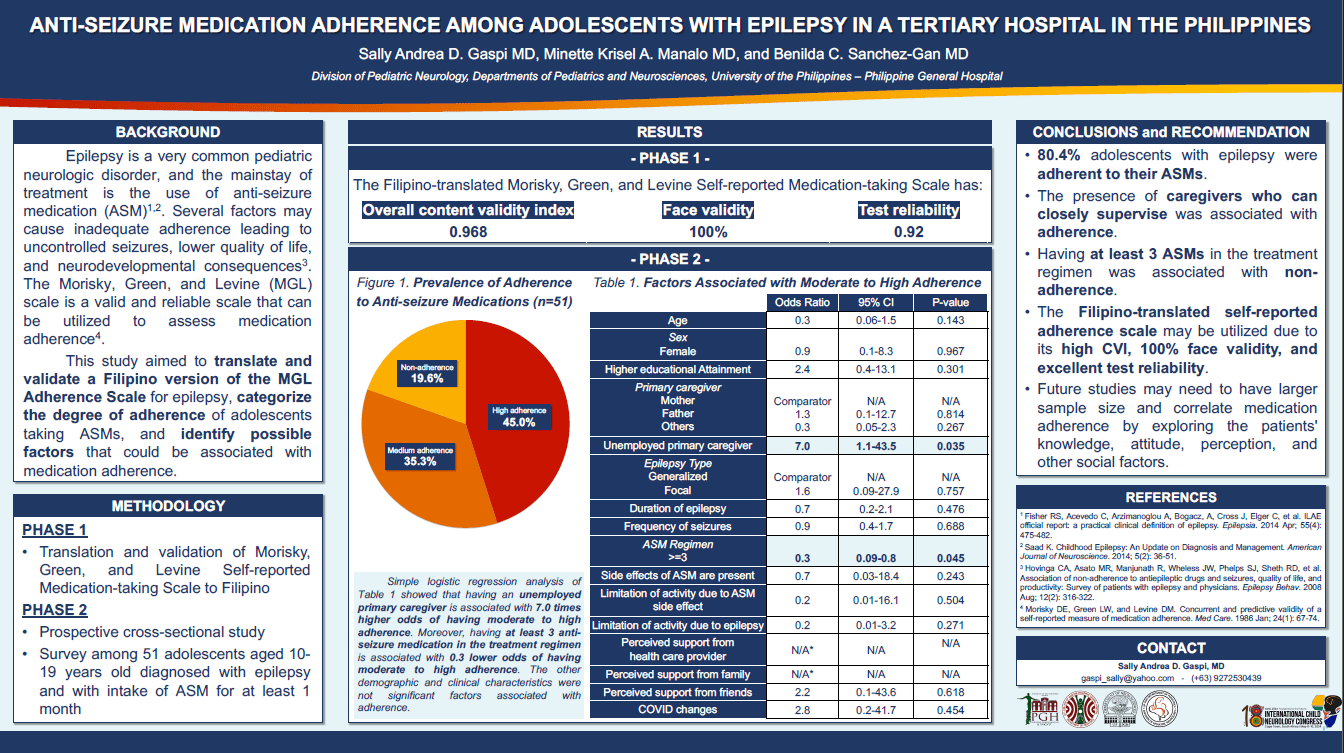Anti-seizure Medication Adherence Among Adolescents With Epilepsy In A Tertiary Hospital In The Philippines
Introduction. Epilepsy is one of the most common neurologic disorders affecting children. One of the mainstays of treatment is the use of anti-seizure medications (ASM) to attain seizure freedom and good quality of life. This study aimed to translate and validate a self-reported adherence scale for epilepsy, determine and categorize medication adherence of adolescents with epilepsy, and identify factors that may be associated with adherence. Methodology. This is a prospective cross-sectional study involving adolescents with epilepsy. A self-reported survey was used to measure adherence. Data on demographics and epilepsy were assessed for presence of association with adherence. Results. The translated self-reported medication-taking scale had an overall content validity index (CVI) of 0.968, 100% face validity, and 0.92 test-retest reliability. Fifty-one participants were included – 19.6% were non-adherent, 35.3% had medium adherence, and 45.1% had high adherence. Simple logistic regression analysis showed that an unemployed primary caregiver and consuming at least 3 drugs are associated with 7.0 times higher and 0.3 times lower odds of having moderate-high adherence, respectively. Conclusion. As high as 80.4% of adolescents were adherent to their medications. The presence of a caregiver who can closely monitor the patient is associated with adherence while intake of several drugs is associated with non-adherence. The translated tool may be utilized due to its high CVI, 100% face validity, and excellent test reliability. Future studies may need larger sample size and explore knowledge, attitude, and other factors that may influence medication adherence.
Sally Andrea Gaspi
Philippine General Hospital
Philippines
Minette Krisel Manalo
Philippine General Hospital
Philippines
Benilda Sanchez-Gan
Philippine General Hospital
Philippines

Sally Andrea Gaspi
Philippine General Hospital
Philippines